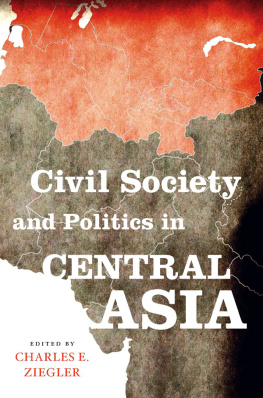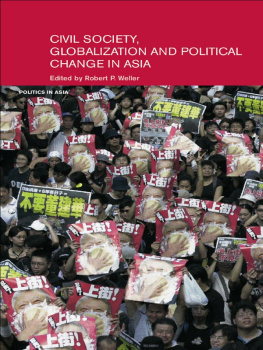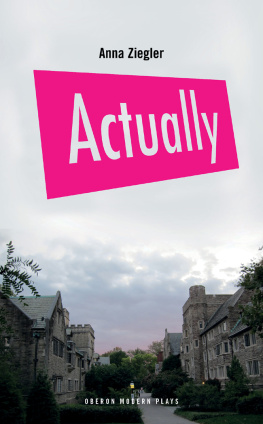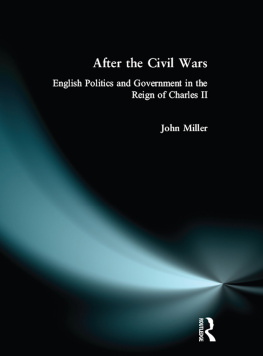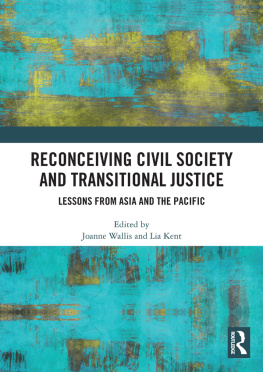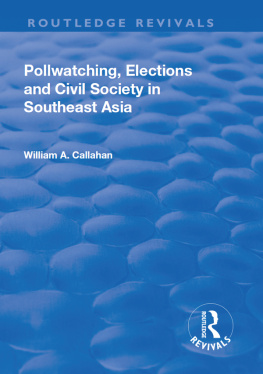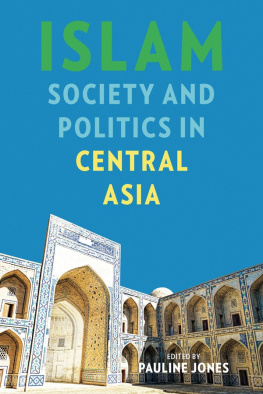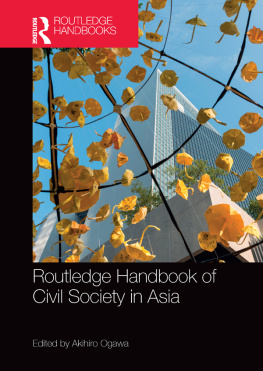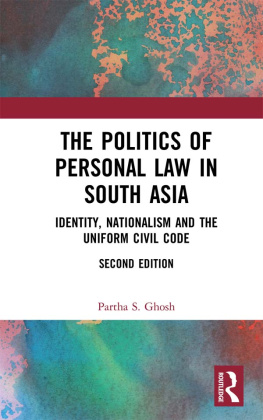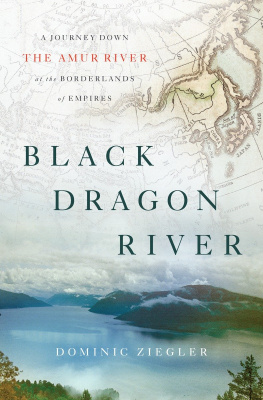Due to variations in the technical specifications of different electronic reading devices, some elements of this ebook may not appear as they do in the print edition. Readers are encouraged to experiment with user settings for optimum results.
Copyright 2015 by The University Press of Kentucky
Scholarly publisher for the Commonwealth, serving Bellarmine University, Berea College, Centre College of Kentucky, Eastern Kentucky University, The Filson Historical Society, Georgetown College, Kentucky Historical Society, Kentucky State University, Morehead State University, Murray State University, Northern Kentucky University, Transylvania University, University of Kentucky, University of Louisville, and Western Kentucky University.
All rights reserved.
Editorial and Sales Offices: The University Press of Kentucky
663 South Limestone Street, Lexington, Kentucky 40508-4008
www.kentuckypress.com
Library of Congress Cataloging-in-Publication Data
Civil society and politics in Central Asia / edited by Charles E. Ziegler.
pages cm
Includes index.
ISBN 978-0-8131-5077-2 (hardcover : alk. paper) ISBN 978-0-8131-5078-9 (pdf) ISBN 978-0-8131-5079-6 (epub)
1. Civil societyAsia, Central. 2. Islam and civil societyAsia, Central. 3. Public administrationAsia, Central. 4. Asia, CentralPolitics and government1991- I. Ziegler, Charles E., editor of compilation.
JQ1086.C57 2015
300.958dc232014039421
This book is printed on acid-free paper meeting
the requirements of the American National Standard
for Permanence in Paper for Printed Library Materials.
Manufactured in the United States of America.
| Member of the Association of American University Presses |
Introduction
Charles E. Ziegler
The five Central Asian states of Kazakhstan, Uzbekistan, Kyrgyzstan, Tajikistan, and Turkmenistan constitute a region of great importance in world politics. Historically, this remote area lay at the center of a struggle for influence and empire between Russia and Britain. Todays major powersRussia, China, the United States, and the European Unionare not simply replaying the nineteenth-century Great Game. Geographic expansion and empire building may have become less relevant for the great powers, but security concerns remain, and in the twenty-first century these revolve around terrorism, narcotics, and hydrocarbons, all of which broader Central Asia has in abundance.
A quick glance at a map of the region confirms Central Asias position at the center of Eurasia. Central Asia is the main transit route for heroin to Russia and was at one point the main transit route for American and NATO supplies and personnel into Afghanistan. Its Turkic Muslim peoples share ethnic and religious roots with Chinas restive Uighurs in neighboring Xinjiang province. Some Uighurs have connections to the Taliban in Afghanistan and Pakistan, fueling Beijings acute fear of terrorism and separatism. The Caspian basin holds immense reserves of oil and natural gas. Those states rich in hydrocarbonsKazakhstan, Turkmenistan, and Uzbekistancan benefit immensely from this wealth, assuming they do not succumb to the resource curse, but they must rely on foreign companies (usually backed by foreign governments) to develop these resources.
Central Asias stability, prosperity, and governance remain problematic. As the Arab Spring movements of 2011 attest, there are tensions between repressive and corrupt states and an educated and often dissatisfied population. Revolts in Kyrgyzstan (in 2005 and 2010) and Uzbekistan (in 2005), Tajikistans civil war (in the 1990s), and continued terrorist incidents (in 20102011) and strikes and suicide bombings (in 2011) in normally quiet Kazakhstan do not bode well for the region. The manifold problems, threats, and potential of the region, and the uneasy relationship between these states and their societies, lead to the following broad research questions: What is the state of civil society in Central Asia today? How do diverse civil society groups relate to their respective governments? Are there autonomous spaces where social organizations can function free from state interference, and if so, what roles do they play in these societies? Could civil society in Central Asia become a force for democratization as it has in North Africa?
C ENTRAL A SIA AND THE C ONCEPT OF C IVIL S OCIETY
There has been broad debate in the academic literature about the applicability of the concept of civil society to the authoritarian states of post-Soviet Central Asia. Some argue that, unlike the former communist states in Eastern Europe or the western part of the former Soviet Union, the Central Asian states of Kazakhstan, Kyrgyzstan, Uzbekistan, Turkmenistan, and Tajikistan do not have civil societies in the generally understood use of the term. Alternately, they may assert that an incipient civil society exists largely due to the financial support and educational efforts of foreign donors.1 Others, including most of the authors of the chapters in this volume, find elements of civil society even within the repressive constraints of these authoritarian regimes, though they acknowledge that Central Asian activism may assume forms quite different from those in the West.2 Since the Central Asian states are among the worst performers in terms of democratization following the Soviet collapse, it is worth considering whether such democratic deficits may be explained by the extremely weak and constrained civil societies in the region.
The authors in this volume agree that civil society is an important component of democracy at several levels. Civil society may play an active role in the eventual downfall of authoritarian regimes, as social pressures and political demands accompany modernization, though there are many examples of regime change in the absence of civil activism.3 Civil society also plays a substantial role in deepening democracy once a transition has occurred, by broadening participation among various societal groups, strengthening citizens rights to influence decisions affecting their lives, holding elites accountable to the public, increasing transparency, and in general providing for improved governance. Central Asian regimes have yet to begin the transition toward democracy, so our focus here is on the current relationships between state and civil society and the potential for political transformation in each of the five countries.
The question of the existence and extent of civil society in Central Asia is important for several reasons. First, the Arab Spring events of 2011 demonstrated the potential for civic activism even in the most repressive dictatorships. The success of the Arab Spring in contexts far removed from the American and Western European experience suggests that it is indeed legitimate to discuss civil society in non-Western and Islamic settings. Second, the potential for civil society activism to transform a region has particular relevance to American foreign policy goals. Democratization in the Middle East and North Africa may align these new regimes with Western democratic values; conversely, it may result in the rise of Islamic extremist parties hostile to U.S. interests. A similar process of political ferment in Central Asia could affect efforts to stabilize Afghanistan, rebuild Iraq, contain Iran, and develop the regions hydrocarbon resources, all U.S. priorities. For this reason, an analysis of the potential for civil society activism in Central Asia is valuable.




